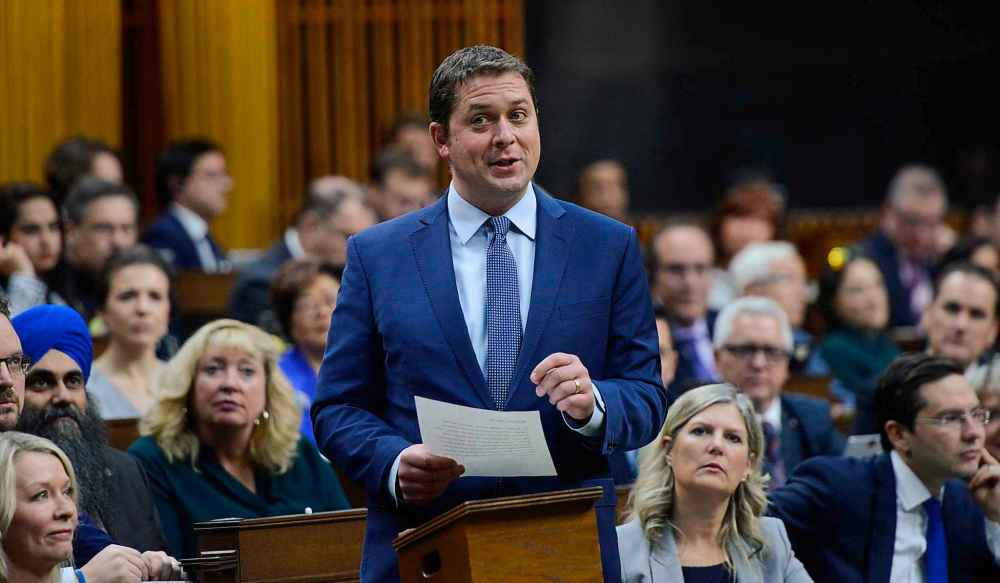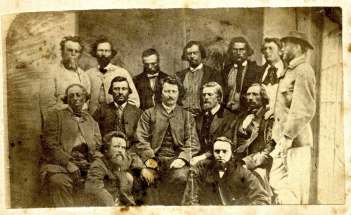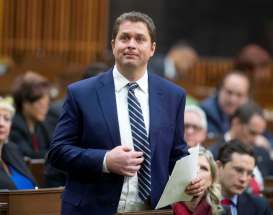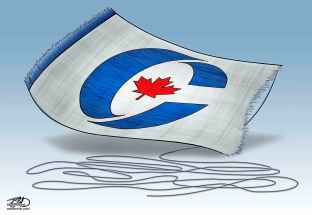Scheer’s exit was a matter of when, not if
Read this article for free:
or
Already have an account? Log in here »
To continue reading, please subscribe:
Monthly Digital Subscription
$0 for the first 4 weeks*
- Enjoy unlimited reading on winnipegfreepress.com
- Read the E-Edition, our digital replica newspaper
- Access News Break, our award-winning app
- Play interactive puzzles
*No charge for 4 weeks then price increases to the regular rate of $19.00 plus GST every four weeks. Offer available to new and qualified returning subscribers only. Cancel any time.
Monthly Digital Subscription
$4.75/week*
- Enjoy unlimited reading on winnipegfreepress.com
- Read the E-Edition, our digital replica newspaper
- Access News Break, our award-winning app
- Play interactive puzzles
*Billed as $19 plus GST every four weeks. Cancel any time.
To continue reading, please subscribe:
Add Free Press access to your Brandon Sun subscription for only an additional
$1 for the first 4 weeks*
*Your next subscription payment will increase by $1.00 and you will be charged $16.99 plus GST for four weeks. After four weeks, your payment will increase to $23.99 plus GST every four weeks.
Read unlimited articles for free today:
or
Already have an account? Log in here »
Hey there, time traveller!
This article was published 14/12/2019 (2188 days ago), so information in it may no longer be current.
Of course, he was going to leave. The only question for Andrew Scheer was when.
And it’s in the answer — that the Conservative Party of Canada’s (CPC) leader should announce rather abruptly on Thursday he is resigning, setting in motion what promises to be a spirited and well-populated race to replace him — that the only surprise lies.
Much was made at week’s end about the “scandalous” spending of Conservative Fund dollars in support of private-school tuition for Mr. Scheer’s children; some of those who had favoured Mr. Scheer’s removal after the CPC’s disappointing performance in the recent federal election touted the tuition top-up — which party executives insist was “normal practice” that followed proper procedures — as evidence of a misdeed of sufficient magnitude that the leader had to go, immediately.

In reality, the school-tuition issue was not a blunt-force hammer blow that crushed Mr. Scheer’s leadership tenure; rather, it was simply a lever that was nudged to hasten his momentum toward an exit that had been inevitable for weeks, despite his publicly stated determination to remain in the role of leader.
Simply put, Mr. Scheer’s fate was sealed when the CPC, with him as its figurehead, lost an election that was so very, very much there for the winning. Despite facing a Liberal leader deeply wounded by scandal at both the party (SNC-Lavalin) and the personal (India-trip embarrassments, black/brownface revelations) levels, Mr. Scheer could not, in any region except the Alberta/Saskatchewan section of the Prairies, convince voters that he was a more attractive and credible candidate for the role of prime minister.
Mr. Scheer’s culturally conservative personal positions on such issues as same-sex marriage, LGBTTQ+ equality and reproductive rights became something of an albatross in more liberal-thinking Ontario and Quebec, and the Conservatives’ inability to win support in the two most seat-rich provinces doomed it to another term, albeit in a minority Parliament, in the opposition benches.
For a lot of reasons, now was the time for the Conservative Party to take control of Parliament. Mr. Scheer, however, proved not to be the leader to deliver the required result. And now, what’s required of the CPC is some long, laborious thought about what kind of party it wants to be, and what kind of leader it needs to get it there.
It’s a daunting challenge. For all who criticized Mr. Scheer’s inadequacies as party leader, it’s worth noting that the only viable alternative in the 2017 leadership race was Maxime Bernier, who came within a hair’s breadth of winning the leadership and then promptly packed up his anti-immigrant attitudes and founded his own wildly unsuccessful far-right alternative party.

It might be that the Conservatives’ leadership competition in 2017 was particularly uninspired, with many would-be candidates opting to sit it out because they viewed the Liberals and Justin Trudeau as unassailable in 2019. If that’s the case, one might expect this next CPC leadership race to be replete with experienced and ambitious high-profile contenders eager to grab the reins as the Conservatives mount a much more determined charge — probably sooner, rather than later — at the wounded and weakened minority-government Liberals.
For the CPC, and for Canadians in general, interesting times await. Whoever ascends next to the Conservative party’s leadership must, above all else, have the ability to convince an entire nation — not just the disaffected denizens of wheatfields and oilfields — that it’s time for change.













